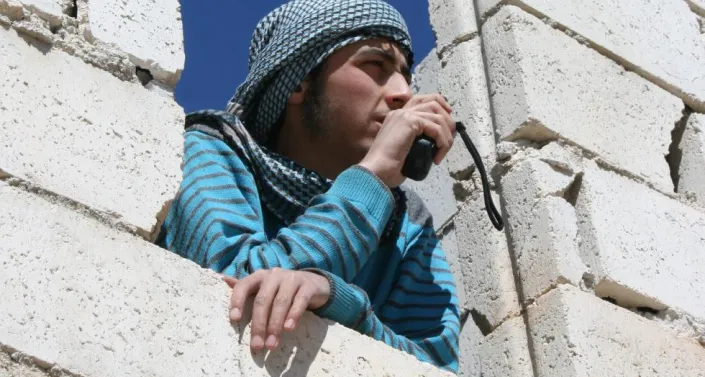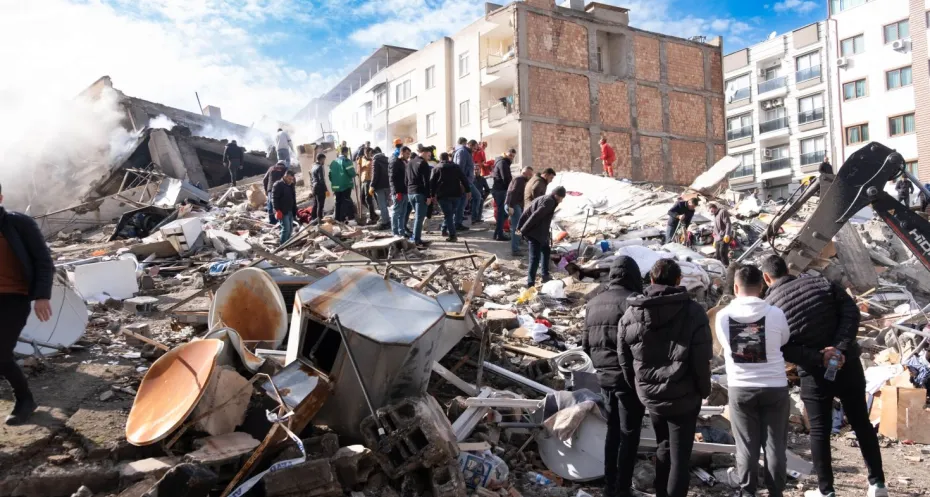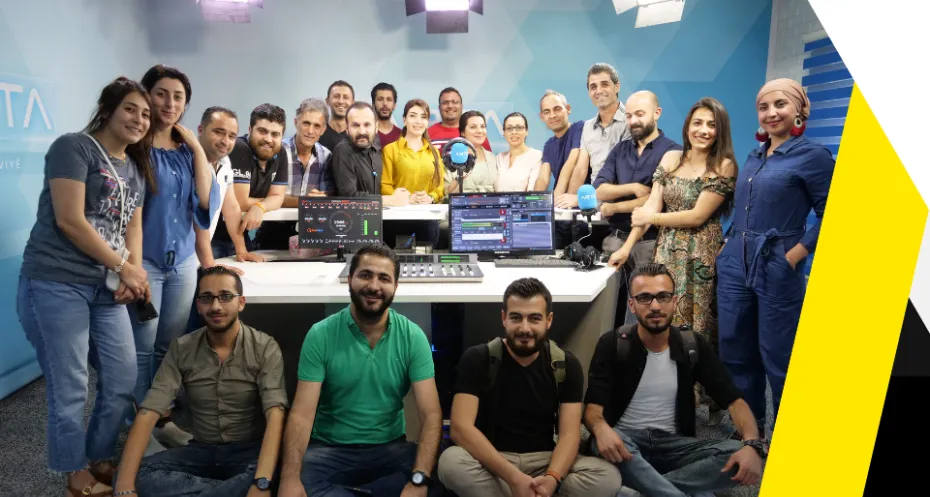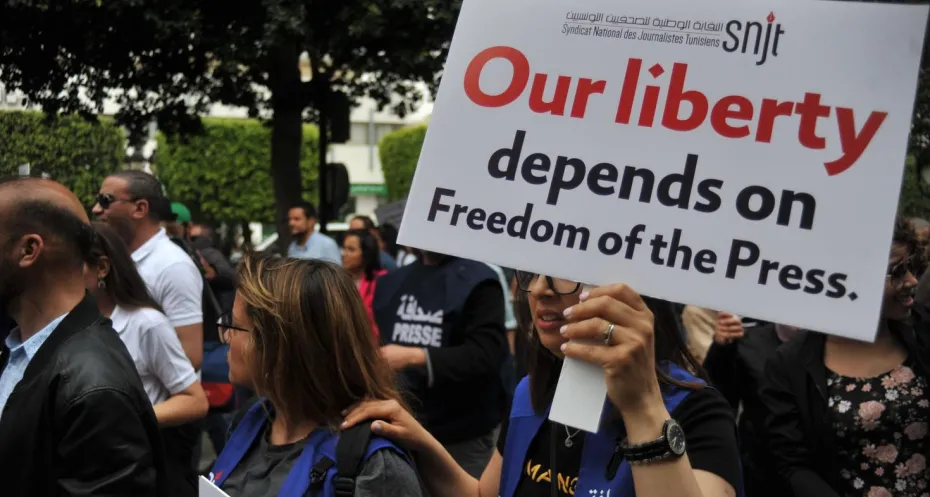
Syria
For more than a decade, Syria has been ravaged by civil war. Practicing independent journalism was already difficult before, and now it is even more.
Free Press Unlimited started its engagement in Syria shortly after the first uprising. There were small media initiatives of people wishing to inform the world what was happening in their area. In 2023, Free Press Unlimited implements a third programme on Syria. We work with independent media outlets and media institutions, that are bound by adherence to ethical reporting.
Catch-22 situation
After repeated attempts, the last round for the peace process stranded once again in July 2022. For many Syrians, this impasse was just another setback. The stagnation perpetuated divisions across the country. There are major socio-economic and political differences, not only in the country but also in the Syrian media sector. The economic sanctions of the USA, among others, have also led to divisions in the media landscape. Some voices reap the benefits, while others suffer. In addition to this the earthquake on 6 February 2023 devastated large parts of Syria and Turkey.
It does not look like there will be any change in the near future. The result is a catch-22 situation: strong, independent media are needed to give access to correct and verified information and fight hate speech and corruption. But at the same time, instability, uncertainty and the lack of democracy and freedom limit the development and growth of these media. Meanwhile, journalists are trying to circumvent regional powers or to operate in exile.
Safety of journalists during conflicts
A Syrian journalist is generally at high risk of being arrested, kidnapped or murdered. Since 2011, at least 300 professional and non-professional journalists have been killed while covering artillery bombardments and airstrikes or murdered by the various parties to the conflict, according to RSF. Unfortunately, there is no change in sight. Several parties involved in the conflict put large amounts of money into the media, resulting in biased coverage. It therefore remains crucial to support the local development of (social) media for disadvantaged groups, so that they can report on the real situation in Syria.
Our work in Syria
Free Press Unlimited works with and supports various independent media institutions and media outlets with financial support from the Swedish Agency for International Development Cooperation and the European Union. Working with independent journalists has been fundamental, as Syrians have a widespread lack of trust in the media, and seek more reliable and pluralistic news.
In October 2021, the Ethical Journalism for Syrian Media (EJSM) programme came to an end after five years of supporting the re-emerging Syrian media sector, with the aim to strengthen their institutions and make their foundations more sustainable. Despite the violent conflict and the horrible conditions many great initiatives on the ground could survive and flourish. To capture the past five years, the programme’s carriers Free Press Unlimited and Synergy-Takamol, wanted to visually document key outcomes of the journey they undertook with partners and actors on the ground. For this a website was created where the impact of the programme is illustrated in seven personas that tell a story per thematic focus of the programme.
The Syria programme continues on building upon previous projects, with its newest programme called Cohesion for Independent and Inclusive Media. Free Press Unlimited supports local partners in creating impact in their communities, and also facilitates dialogue between media and CSOs to build networks, cohesion and to bridge gaps within the sector. A part of the programme is also to advocate for Syria to remain on the international agenda, by giving room to the voices of our partners.
The Co-Production Small Grant Fund (CpF) programme is an example of an inclusive and problem-solving approach to the situation in Syria. Here, cooperation between civil society organisations and media channels is encouraged towards producing constructive journalism. In this way, they can pull together in the social debate and, where possible, strengthen each other's voices, in order to find solutions and continue to work towards peace.
Most recently in 2023, Syria and Turkey were devastated by the earthquakes, leaving local partners in perpetual distress. Nonetheless, independent journalists have already begun to pick up their work, with some even working on the frontlines of the disaster. Free Press Unlimited remains close to our local partners to provide them with any support needed throughout an ever-changing and volatile context.



